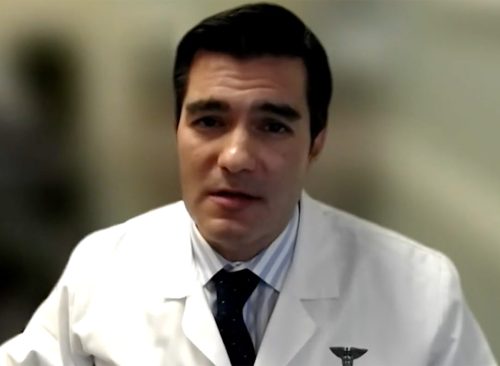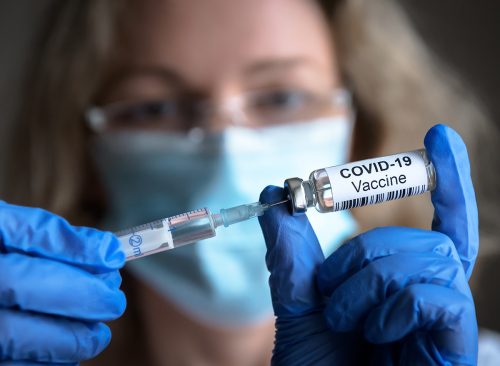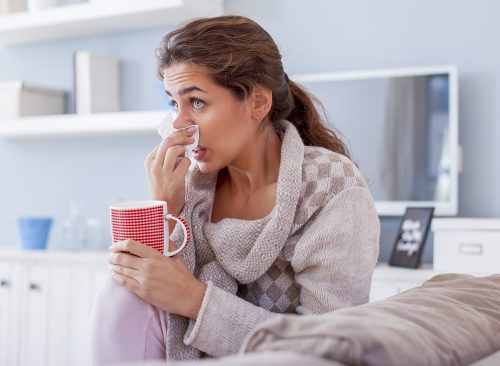I'm a Doctor And Here Are Best Ways to Protect Yourself Against the Next COVID Wave
Here is how to stay safe.

COVID-19 hospitalizations seem to have leveled off after rising steadily since mid-July, indicating the late-summer surge may have crested into a lull. But doctors are warning that this is probably just the calm before the storm. In previous years, COVID cases have jumped alongside the flu as cold weather sets in and people spend more time indoors. So, what are the best ways to protect yourself against the next wave? Here's what doctors around the country advise.

"This is the season where respiratory virus tends to occur," Dr. Jesse Bracamonte from Family Medicine in Philadelphia told CBS News this week. "Make sure you get plenty of rest. You're eating healthy. You're exercising. You're taking care of yourself."

"The vaccines do work," Dr. Andrew Pekosz of the Johns Hopkins Bloomberg School of Public Health told WJZ. "They are safe and now's the time you get them." The CDC recommends everyone age six months and older get this year's updated COVID and flu shot by the end of October. "You can get them in various combinations," said Pekosz. "You can get them one at a time. If you'd prefer, you can get certainly their COVID and the influenza vaccine at the same time."

"Look at your toolkit, make sure it's fully stocked and ready with tests, with masks," Dr. Keri Althoff, an epidemiologist with Johns Hopkins, told WJZ. If you're at risk for severe illness, talk with your healthcare provider about what you should do if you contract COVID. Antiviral medications are available that can reduce the severity of the illness.

"Upper respiratory tract symptoms, in today's world, you should get a COVID test," Dr. Frank Rhame, an infectious disease physician in Minneapolis, told WCCO. Upper respiratory tract symptoms include headache, nasal congestion, and runny nose. You should also test if you have lower respiratory symptoms such as cough, chest tightness, wheezing or shortness of breath.

Well-ventilated spaces reduce COVID's ability to spread from person to person. Outdoors is still safer than indoors. "Remember your ventilation practices, particularly if you're hosting this holiday season," advised Althoff.

Experts reiterate that good hand hygiene can help prevent you from contracting COVID or other respiratory viruses.

"The most important reason to stay up-to-date on coronavirus vaccines (and the flu vaccine and RSV vaccine, for that matter) is to reduce your risk of hospitalization and death," said public health expert Dr. Leana Wen in the Washington Post. "The Centers for Disease Control and Prevention reports that the bivalent vaccine reduced the chance of critical illness by 69 percent in the week to 59 days following the shot. The protection remained three to four months later, though it diminished to 46 percent. These numbers are comparable with the flu vaccine." But it doesn't guarantee you won't be infected, and if you're at risk of severe illness, you should still take precautions (like masking in crowded public places) to avoid contracting the virus.
RELATED: Surprising Signs You've Already Had COVID

Don't get complacent, doctors urge. "We see that the biggest threat now with COVID and soon to be with flu is what we call 'presenteeism' that is people coming to work or to school, not taking precautions and infecting others," Dr. Don Yealy, chief medical officer with UPMC told KDKA. "It's not just about yourself, it's about everybody around you, and you can't tell from looking at someone how vulnerable they are," he said. COVID "puts people in the intensive care unit and on breathing machines and still kills people at a rate that's higher than influenza or many other respiratory pathogens."














